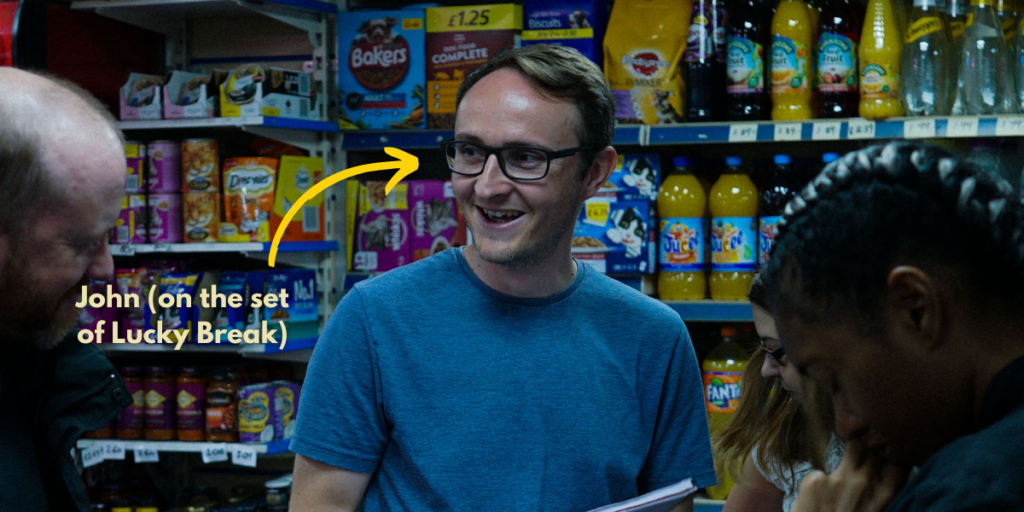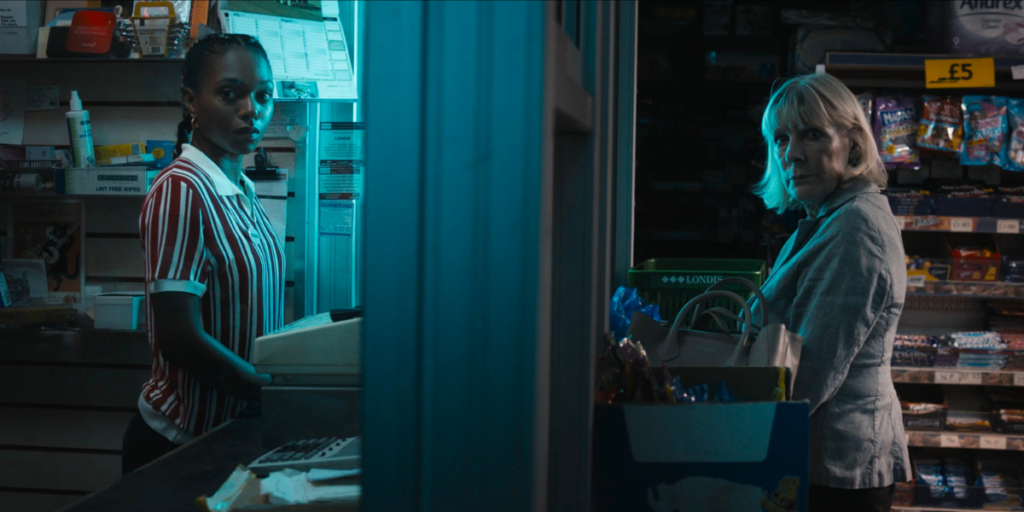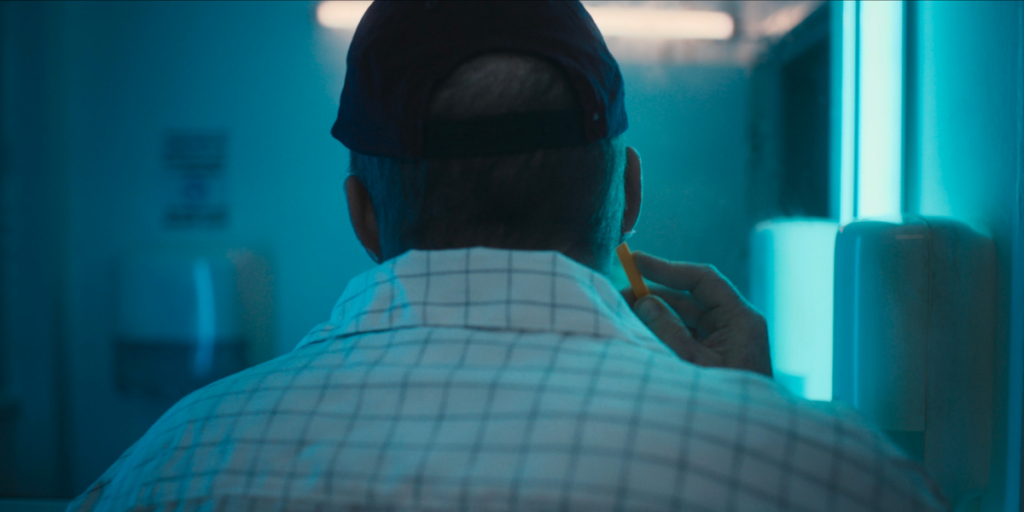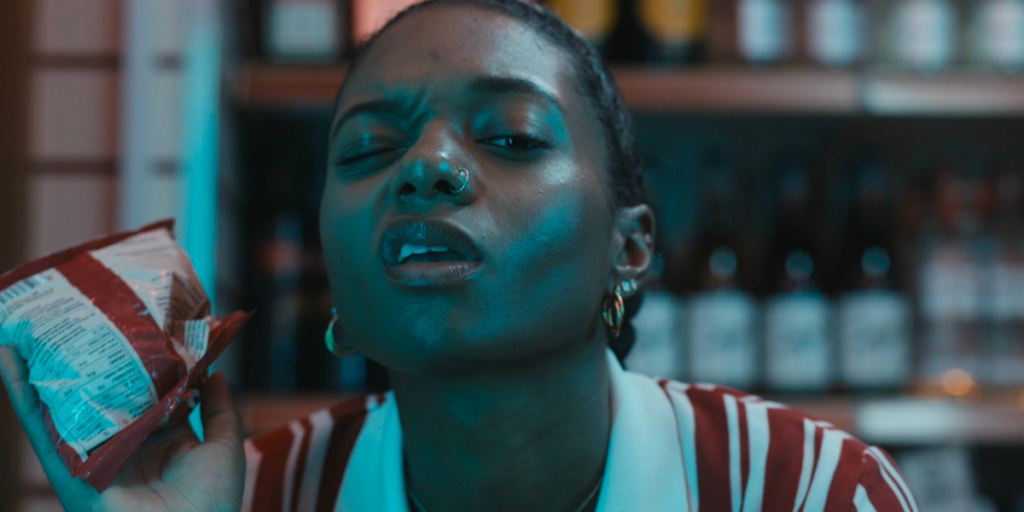John Addis: On Shooting with Mirrorless
LUCKY BREAK, directed by SP member John Addis, was nominated for the BAFTA for best short film, and selected as the overall New Shoots winning film in 2021. We caught up with John to chat about his experience of creating this award-winning film, and what he has been up to since.

‘Lucky Break’ synopsis: Uloaku works the graveyard shift at a remote service station and is bored out of her mind. Fortunately a chance encounter with a suspicious stranger will soon fix that.
John Addis has worked in the film industry for over 10 years, predominantly as an Editor in features and a Writer/Director on micro budget short films, music promos and other commercial work. His interview is a candid take on challenges faced in the writing and shooting process – most of you will relate to how dealing with unexpected glitches might make for a better film.
John speaks about how ‘Lucky Break’ was written to be something self contained and achievable on a low budget. “I’d written a comedy feature which was going nowhere (because it was overblown and not very good) so I knew I needed to write something simpler and shorter,” says John. “By constraining myself to one location and a few characters it actually made the writing process a lot more fun.” Because the film is so contained it’s all about the performances. The casting definitely made the film, with on-screen talent being Jessye Romeo, Steve Oram and Diana Weston.
“If we hadn’t got the right cast it would have all been for nothing so I’m forever grateful to them for being so willing to work on it,” says John.

On SP, some of the most useful discussions come from people sharing experiences of things that didn’t work out on a film or a big challenge they had to overcome. Interestingly, the biggest challenges on ‘Lucky Break’ came after the film was shot. “We shot the whole thing in two days then I went back to my day job for a week and detached from it for a bit. When I came to start editing I realised the middle section didn’t work and I was devastated.” In the original script Steve Oram’s character disappears and we stay with Jessye as Diana keeps berating her. “In the edit I found it sapped all the energy out of it. It was nothing to do with the performances, it just wasn’t fun anymore,” he explains.
They made it work with a swift reshoot in the toilets at the company John worked for at the time. This goes to show how being adaptable is a key part of the creative process, and it really doesn’t finish once you’ve shot the film (although it’s certainly a big ‘phew’ moment).

John’s background is actually in editing, and he did admit that he is no stranger to imposter syndrome when it comes to directing. His way around this is extensive prep. “By storyboarding then shooting little tests on phones I try to work out ahead of time what works and what doesn’t so we can go into the shoot with a clear idea of exactly what we need,” he says.
However, John’s experience in post-production and his editing skills are proving to be a real asset to his directing. “When it comes to editing, I’ve always edited the films I directed so I actually think I’d struggle more if I didn’t.” Whilst the ‘we’ll fix it in post’ attitude can just be a way of delaying your problems and adding more work in the future, editing is also your chance to salvage all those things you got wrong on the shoot. “I know people say it’s a bad idea to edit films you’ve directed because you can’t detach from the logistics of the shoot and I think they are right,” John explains. “I guess I just fell into it because of my background but I’d love to try working with an editor.”

Ultimately, ‘Lucky Break’ was made as a result of rejection (and John’s strategic approach to writing the screenplay with the budget in mind). “My first draft of ‘Lucky Break’ got included in the BFI Network short film fund but ultimately wasn’t selected for funding. This was a massive blow to my confidence but by that stage I’d already worked on it for a while,” he says. In the end John was able to fund the film himself because he’d intentionally designed it to be achievable on a low budget.
“It was obviously a gamble but at the time I just really needed to go out and film something! Knockbacks are inevitable. I know it’s easy to say, but if you really want to make something you have to keep going.”
A little bonus from John about what’s coming up for him: “I’m really excited to use the Nikon Z 6II movie kit. The thing I like most about it is how portable it is. I’m currently prepping for another directing job which will require lots of shooting on city streets at night so the camera and accessories [that John won as the overall 2021 winner of NS: Filmmakers] are perfect for this. If we were using a bulkier setup we’d really struggle to get through it but the Nikon Z 6II was made for this kind of location shooting and the thing I like most about it is how portable it is.”
John won the Z 6II Essential Movie Kit. This year’s overall winner will win the all new Z 9 camera body plus memory card, valued at over £5000.
